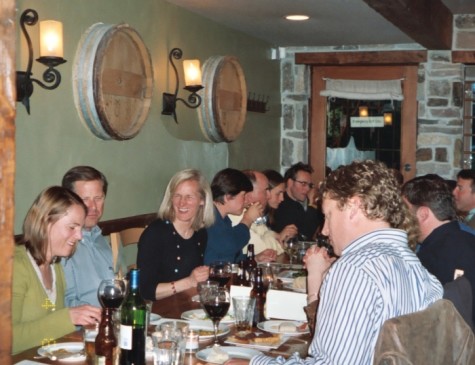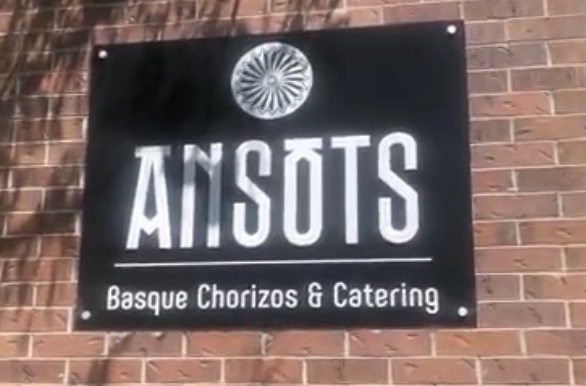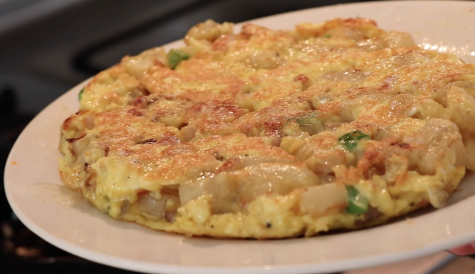Girls and boys play pala in South San Francisco
February 16, 2014
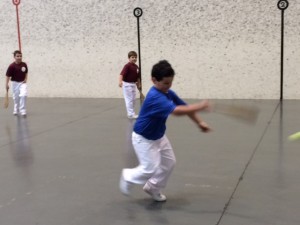
The recent 32nd anniversary celebration at the Basque Cultural Center included pala games played by youngsters ages 7 – 13.
Every Saturday at 8 a.m., the group meets for practice at the center’s fronton in South San Francisco. Former pala player Evelyne Etcharren coaches the group.
“We consistently get about 12 kids every Saturday,” said Etcharren. The cultural center, with its grand indoor handball court, offered handball lessons for boys, “but there was nothing for the girls to play,” she said.
Etcharren, whose specialty was paleta goma, or pala, as it is usually referred to, decided to start the program about seven years ago. The traditional Basque sport, played with a wooden racquet, is easier to learn than handball, which is hard on the hands.
“They offered it and my dad wanted me to try it,” said Sylvia Berterretche, who’s been playing for about five years. “I ended up liking it.” The toughest part, she said, is getting up early on Saturday, especially if she’s stayed up late the night before, but the coach is forgiving about missing practice occasionally.
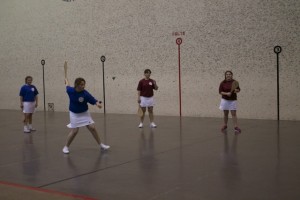
Pala is fun once you get used to playing it, said Dominic Savage, 13. Players are supposed to switch the racket from hand to hand, depending on the angle of the ball, but that’s a challenge. “I still can’t swing with my left,” said Savage.
Bakersfield and San Francisco both boast of young handball players. However, Gratien Etchebehere, the cultural center’s pilota chair, said theirs is possibly the only youth pala program in the U.S., although he noted that some kids may possibly play at the indoor fronton in Boise. Certainly the young age of the two seven-year-olds playing in the first game Saturday, Feb. 15, was unusual.
Joana Arrechea and Maite Kvarna, both 13, have played at the center since they were 7. By now, they consider themselves “decent” players. They attended Udaleku, the Basque cultural camp in Bakersfield last summer, where the participants are given a short taste of the sport. Arrechea and Kvarna said that in that group, they were definitely among the best.
“It’s fun,” they both agreed.
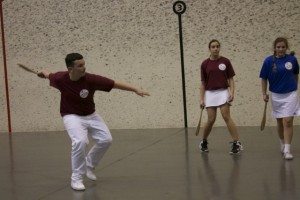

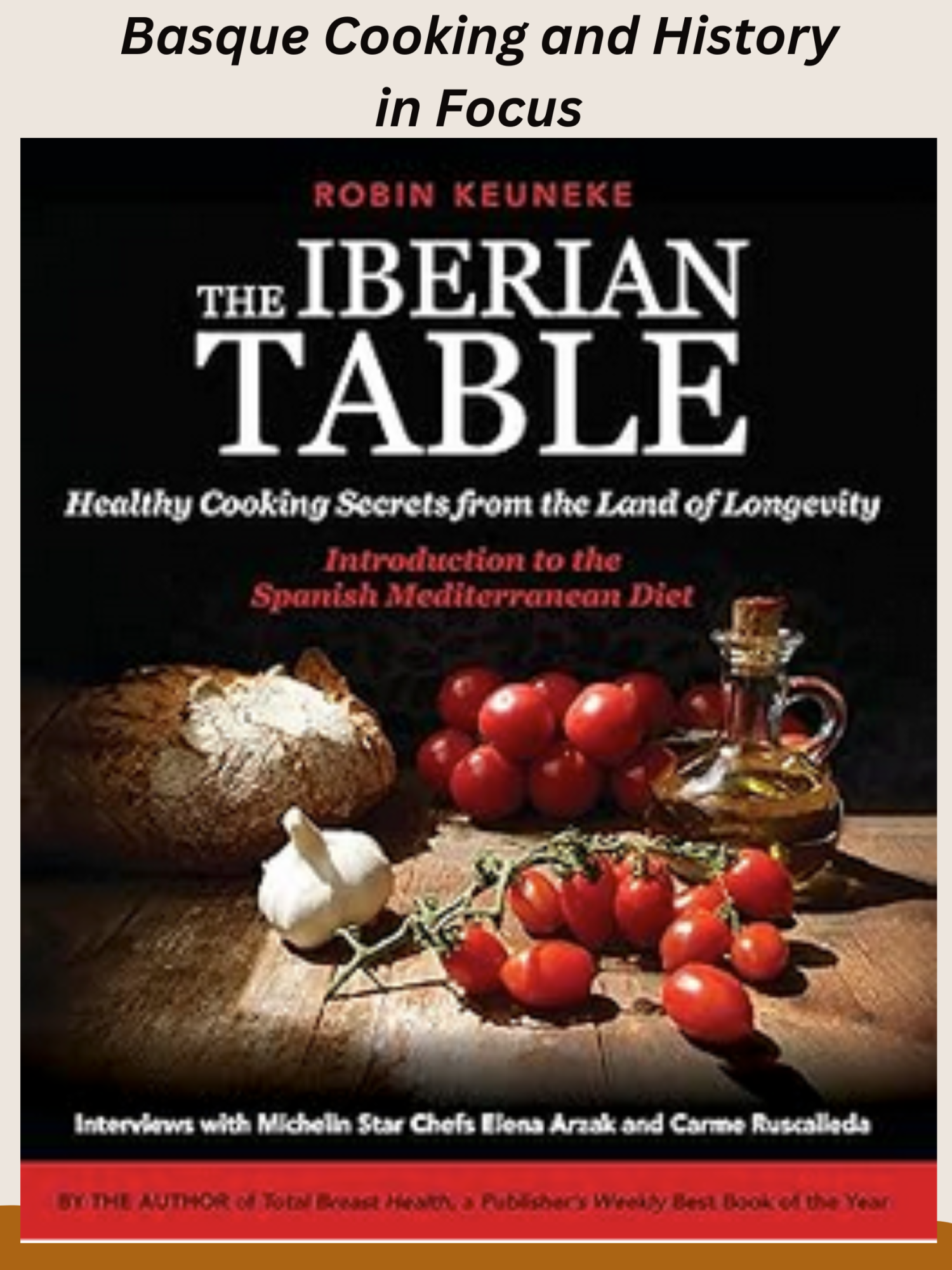
 Donate
Donate
